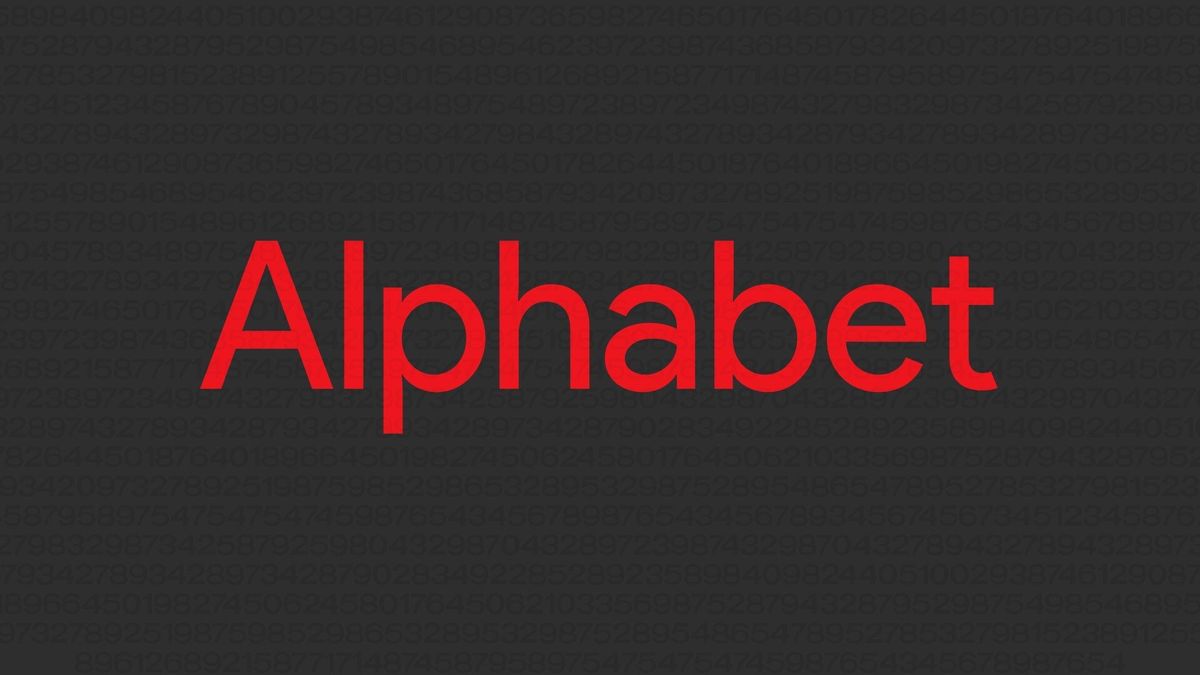How may they shield themselves from A.I.?
That was the query that Mike Masnick discovered himself fielding this summer time in a WhatsApp chat with about 100 administrators, actors and screenwriters. The group, together with marquee expertise, was fearful a couple of grim attainable future wherein deepfake variations of actors carry out screenplays written by ChatGPT.
Mr. Masnick, knowledgeable tech wonk, advised his Hollywood listeners to work with what that they had: Publicly disgrace tasks that substitute human labor with synthetic intelligence, use state publicity legal guidelines in opposition to any unauthorized deepfakes and battle onerous for contractual protections. (The battle is on: A.I. is one cause for the writers’ and actors’ strikes which have paralyzed the movie and tv business.)
However he additionally prompt that they capitalize on the expertise. Satisfied that “A.I. plus human” is the long run, he pointed to the singer Grimes. She invited individuals to make use of A.I.-generated variations of her voice, educated on music that she had accomplished prior to now, in alternate for half of any royalties. One GrimesAI music is closing in on 1,000,000 listens on Spotify.
“Let individuals be artistic and so they’ll do artistic issues and increase the curiosity in your personal work,” Mr. Masnick, 48, mentioned. The technological shift is inevitable, he mentioned, so “use it to your benefit.”
Since beginning his Techdirt weblog in 1998, Mr. Masnick has been doling out this similar message as wave after wave of tech innovation has stirred fears, going again to the time of Napster: The brand new factor is much less scary than you assume it’s.
He had been added to the Hollywood group chat about A.I. by Alex Winter, an actor and filmmaker whose oeuvre ranges from “Invoice & Ted’s Glorious Journey” to documentaries about different alarming expertise, together with Bitcoin and YouTube. Mr. Winter mentioned he appreciated Mr. Masnick’s pragmatism.
“I discover individuals like Mike reassuring as a result of they’re organising guardrails to forestall you from driving your automobile off the cliff in your zeal to search out options,” he mentioned.
By sheer longevity and a deep information of tech historical past, Mr. Masnick has grow to be one thing of a Silicon Valley oracle. His message is to embrace change even when painful and to watch out for knee-jerk authorized protections with unintended penalties.
It hasn’t paid very effectively, however what Mr. Masnick doesn’t have in wealth he makes up for in affect. Lawmakers, activists and executives think about him an important information for what’s occurring within the expertise world and what to do subsequent.
“Each time tech coverage information breaks I all the time need to see what Mike’s take goes to be,” mentioned Senator Ron Wyden, Democrat of Oregon, in a press release. Mark Zuckerberg, the pinnacle of Meta, has referred to as him “insightful and cheap.” The tech entrepreneur Anil Sprint mentioned he “exhibits up and ships day-after-day” and has been “submitting always for many years on a beat that’s thankless.”
What Mr. Masnick apparently hasn’t had time for is a redesign of his weblog. A wall of textual content, heavy on hyperlinks, it has not advanced a lot since its founding.
Mental Gig Work
Based mostly simply outdoors Silicon Valley in Redwood Metropolis, Calif., with an workplace view that options tech firm commuters and a large Buddha statue wanting down onto U.S. 101, Mr. Masnick began writing on-line concerning the “high-tech business” within the late Nineties whereas in enterprise faculty — primarily as a ploy to get a job at a long-forgotten start-up — after which by no means stopped.
Within the early 2000s — a thousand years in the past in web time — on-line file-sharing was taking off and CD gross sales have been plummeting. Mr. Masnick exhorted the music business to just accept the web and the chance it provided to attach with extra followers. The web can be nice for artists: fewer middlemen and gatekeepers!
The digitization of music didn’t go precisely the best way Mr. Masnick had hoped. Creators weren’t the first winners; subscription providers like Spotify and Apple Music have been. However artists who had a direct relationship with their viewers did achieve extra energy, as many a Taylor Swift fan can attest.
Mr. Masnick has been an in depth observer of the tech business’s rise from disruptive drive to world-dominating energy middle, however he has by no means fairly managed to reap its astronomical monetary rewards for himself. One of the best ways to explain how he makes a dwelling is as an mental gig employee, equal components enterprise proprietor, tech journalist, coverage analyst, analysis fellow and recreation designer.
Techdirt has a handful of workers and paid contributors, nearly all chosen in meritocratic fashion from the feedback part. Due to Mr. Masnick’s dedication to the free move of data, Techdirt has by no means had a paywall. Promoting and help from the location’s million or so readers have by no means absolutely paid his payments.
Mr. Masnick has written greater than 51,000 (typically prolonged) weblog posts, including extra a number of instances a day, and likewise hosts a weekly podcast. On one Friday this month, he wrote about proposed A.I. rules (principally dangerous, in his opinion), a courtroom’s dismissal of a lawsuit in opposition to Amazon for promoting youngsters “suicide kits” (a tragic case however a superb ruling, he concluded), and authorized challenges to “loopy” age-verification legal guidelines meant to guard kids on-line. (He not too long ago filed a declaration in a lawsuit in search of to cease California from enacting such a legislation, outlining how burdensome it will be for Techdirt to conform.)
He runs the Copia Institute, a assume tank that organizes occasions about web coverage and produces geeky analysis reviews; it accepts sponsorships from foundations and corporations, together with ones that Mr. Masnick writes about, corresponding to Google and Yelp. The monetary entanglement would possibly get him in bother at a standard journalism group, however not at a weblog the place he’s the boss. Sponsors by no means have editorial management, he mentioned.
Being a small impartial tech blogger, Mr. Masnick mentioned, means “discovering that spot the place you may survive.”
In the previous couple of years, he has taken to recreation design. He co-created a role-playing train for the United Nations to assist forecast the long run in nations with political upheaval and a recreation about what it’s prefer to be a web-based content material moderator, sponsored by a start-up advocacy group. Few individuals would describe them as enjoyable, however Mr. Masnick mentioned they helped individuals wrap their heads round sophisticated expertise points like nothing else he had accomplished.
His productiveness hacks embody a laptop computer with a slide-out second display that makes it simple to work on the go and Focusmate, a paid service that pairs him with a stranger to allow them to silently “co-work” collectively. On the finish of a session, they inform one another whether or not they completed what they got down to do.
Within the Heads of Tech C.E.O.s
The message in Mr. Masnick’s Fb Messenger inbox was from the corporate’s chief government, Mark Zuckerberg.
“I don’t assume we’ve met,” Mr. Zuckerberg wrote in February 2021, “however I’ve all the time discovered your writing insightful and cheap, even if you’re vital of us for making errors.”
Mr. Masnick, who supplied this account, tried to message him again — however couldn’t. As a result of he and Mr. Zuckerberg weren’t Fb mates, the message was rejected.
Befitting his standing as an outsider whom insiders learn, Mr. Masnick reached out to another person at Fb, and shortly Mr. Zuckerberg was again in his DMs apologizing for the “bug.”
Once they talked by telephone, Mr. Zuckerberg requested Mr. Masnick what Fb was doing flawed. Given his distaste for highly effective tech corporations that train an excessive amount of management over individuals’s web expertise, Mr. Masnick prompt that Mr. Zuckerberg think about decentralizing.
He talked a couple of idea he has been pushing referred to as “protocols, not platforms” — software program that’s interoperable, like e-mail, so individuals from completely different providers can work together and outdoors builders can construct on it. This is able to open up a marketplace for completely different content material filters and algorithms that customers may select from, giving them extra management over what they did and didn’t see. It might make individuals like Mr. Zuckerberg much less highly effective, as a result of his firm can be permitting third events to be the arbiters of on-line speech, nevertheless it may deflect the complaints they acquired about dangerous speech and censorship.
The concept had resonated with Jack Dorsey, the Twitter co-founder, who credited Mr. Masnick as an inspiration for the creation of Bluesky, a Twitter clone that embraced that strategy.
Mr. Masnick spent greater than an hour on the telephone with Mr. Zuckerberg, however wasn’t certain if he was actually listening — till final month, when Mr. Zuckerberg launched his personal Twitter clone, Threads. The information launch emphasised that the plan was to make it a protocol interoperable with different apps, together with Mastodon. Mr. Masnick celebrated with a protracted weblog put up.
The Streisand Impact
Mr. Masnick has a approach of seeding concepts about expertise that take root and develop.
In 2005, he wrote about authorized threats in opposition to a web site dedicated to amassing urinal photographs. (The early web was a wierd place.) The threats, supposed to take away details about sure urinal house owners, as a substitute created their very own information cycle and garnered extra consideration for the in any other case obscure web site.
Mr. Masnick coined a phrase for an try to censor info on the web that backfires: “the Streisand impact.”
In 2003, Barbra Streisand sued an aerial photographer who had put photographs of her Malibu seaside home on his web site, inflicting the little-seen pictures to go viral. Now the episode is web lore, and the phrase has its personal Wikipedia entry with a protracted record of examples.
It’s a typical Masnickian precept of the web, gleaned from prolonged commentary: Poorly thought-out makes an attempt to resolve on-line issues will make them worse.
“He understands the web in a deep approach that I don’t assume is frequent,” mentioned Corynne McSherry, authorized director on the Digital Frontier Basis. The digital liberties group gave Mr. Masnick an award for digital activism in 2017, when preventing a defamation lawsuit nearly bankrupted Techdirt.
A person who claimed to have “invented e-mail” had sued Techdirt for $15 million over its weblog posts questioning these claims. The swimsuit garnered important media consideration; it’s not among the many examples within the Wikipedia article on the Streisand impact, nevertheless it actually must be.
Mr. Masnick knew the lawsuit was ridiculous and unlikely to succeed, however the authorized payments have been a hardship. Techdirt turned to the web and requested for donations. It acquired the help it wanted, and the swimsuit was ultimately settled with no cash altering palms.
Mr. Masnick acquired to proceed evangelizing for tech innovation.
“I’m attempting to get individuals to see the world the best way I see it,” he mentioned. “It’s cool when individuals can do stuff.”



.jpg)


















